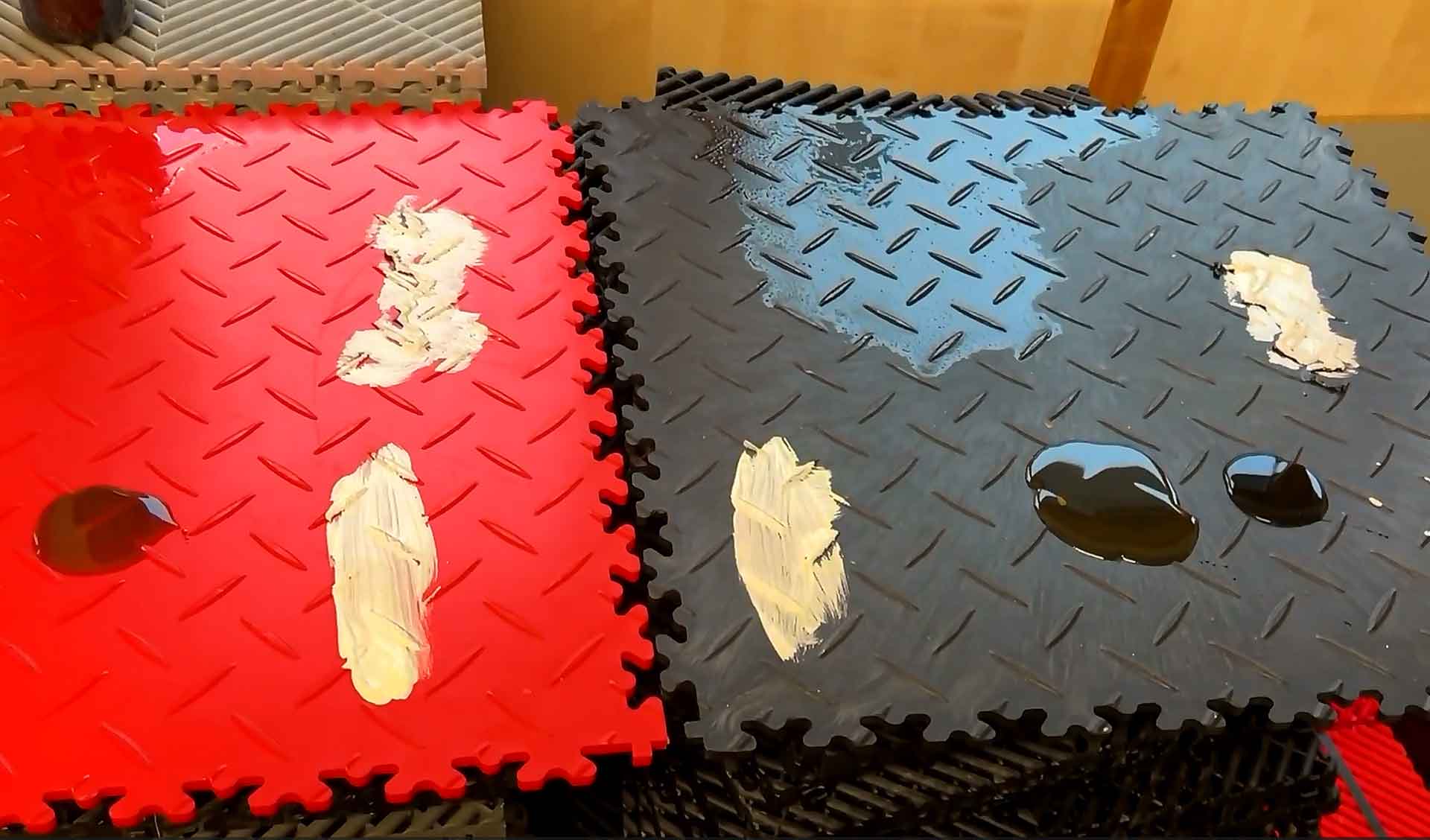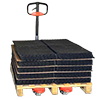PVC tiles in danger: How well does the surface withstand
oil, paint and cleaner?
This experiment investigated how PVC tiles react to various
substances such as paint, oil and brake cleaner. The aim was to find out
whether these substances could damage or attack the PVC tiles.
First, emulsion paint and tinted paint were applied to the
solid and recycled PVC tiles. Then, the tiles were sprayed with brake cleaner
and bitumen adhesive was applied. The tiles were then allowed to dry for two
days to allow the substances to fully penetrate.
After drying, the tiles were cleaned with water and a rag.
It was found that the emulsion paint, oil, tinted paint and brake cleaner were
easily removed without leaving any damage on the PVC tiles. However, the
bitumen adhesive was more difficult to remove because it has a high adhesive
strength and adheres strongly to the tiles.
To better remove the adhesive, a sponge was used to help.
After cleaning with the sponge, the tiles were clean and undamaged again. Both
the solid material and the recycled PVC tiles showed no difference in cleaning.
Overall, the experiment shows that PVC tiles have good
resistance to paint, oil and brake cleaner. Although bitumen adhesive is harder
to remove, again no damage can be seen on the tiles. Cleaning can be done with
a simple water and rag, but if needed, a sponge can be used to assist.
TIP: You can also clean the floor with an old home remedy,
vinegar.
You can clean a PVC floor particularly easily with this home
remedy, as you add some apple cider vinegar to your mopping water to clean your
floor. For particularly stubborn stains, you can leave some of the
vinegar-water mixture on these spots before removing it again.
In very severe cases, there are also special PVC cleaners!












